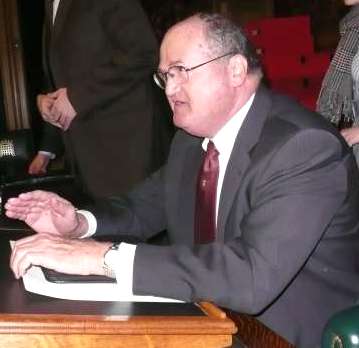
Jason Pack
Jason Pack is an emergency response expert known for his insights into crisis management and public safety protocols. In the wake of the Delta Connection flight 4819 crash at Toronto Pearson Airport, Pack highlighted the differences in emergency response systems between Canada and the United States, particularly the specialized training of Canadian airport firefighters and the structure of paramedic services.
Global Media Ratings
Countries Mentioned
| Country | Mentions | Sentiment | Dominance | + Persistence | x Population | = Reach | x GDP (millions) | = Power |
|---|---|---|---|---|---|---|---|---|
| United States | 1 | 5.00 | 0.05% | +0% | 331,002,651 | 160,681 | $21,000,000 | 10,194$ |
| Totals | 1 | 331,002,651 | 160,681 | $21,000,000 | 10,194$ |
Interactive World Map
Each country's color is based on "Mentions" from the table above.
Recent Mentions
 United States:
Retired FBI supervisory special agent Jason Pack joined 'Fox & Friends First' to discuss the incident and why he believes rhetoric is 'fueling' the unrest.
5
United States:
Retired FBI supervisory special agent Jason Pack joined 'Fox & Friends First' to discuss the incident and why he believes rhetoric is 'fueling' the unrest.
5
 United States:
Retired FBI Supervisory Special Agent Jason Pack analyzes the Brown University shooting suspect’s possible motivation and applauds first responders.
8
United States:
Retired FBI Supervisory Special Agent Jason Pack analyzes the Brown University shooting suspect’s possible motivation and applauds first responders.
8
 United States:
Retired FBI Supervisory Special Agent Jason Pack warns that identity does not predict violence.
6
United States:
Retired FBI Supervisory Special Agent Jason Pack warns that identity does not predict violence.
6
 United States:
Jason Pack, a retired FBI agent, discussed the importance of investigations in public safety.
7
United States:
Jason Pack, a retired FBI agent, discussed the importance of investigations in public safety.
7
 United States:
Jason Pack, a retired FBI supervisory special agent, discussed the strategy of withholding the suspect's name.
6
United States:
Jason Pack, a retired FBI supervisory special agent, discussed the strategy of withholding the suspect's name.
6
 United States:
Retired FBI agent on what's being done behind the scenes to find Charlie Kirk's shooter.
5
United States:
Retired FBI agent on what's being done behind the scenes to find Charlie Kirk's shooter.
5
 United States:
Retired FBI agent on what's being done behind the scenes to find Charlie Kirk's shooter.
5
United States:
Retired FBI agent on what's being done behind the scenes to find Charlie Kirk's shooter.
5
 United States:
Retired FBI Special Agent Jason Pack explained the seriousness of swatting incidents.
6
United States:
Retired FBI Special Agent Jason Pack explained the seriousness of swatting incidents.
6
 United States:
‘This person was determined': Retired FBI supervisory special agent on NYC gunman.
5
United States:
‘This person was determined': Retired FBI supervisory special agent on NYC gunman.
5
 United States:
Retired FBI supervisory special agent Jason Pack comments on the NYC gunman.
5
United States:
Retired FBI supervisory special agent Jason Pack comments on the NYC gunman.
5